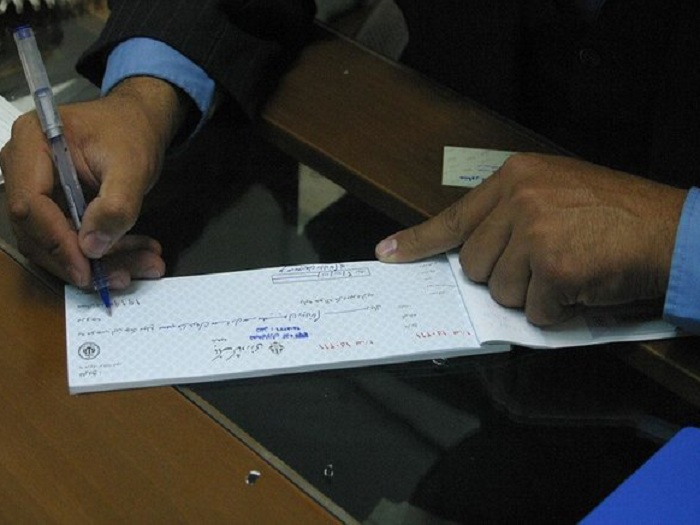The law remained on the ground / Elimination of the bad effect of the check by forging the identity of the returned check holder!

The new Czech law, passed in 1397, provided heavy penalties for exporters of returned checks, thus eliminating the ill effects of returned checks, creating a hot market for the mafia.
According to the International Stone Exhibition of Iran, the new law on issuing checks, which was passed in 1397, included heavy penalties and restrictions for exporters of returned checks, therefore, eliminating the ill effects of these returned checks is a hot market for the mafia The effect of returned checks.
For some time now, in cyberspace and in street advertising, the phenomenon of eliminating the bad effect of returned checks has been seen as guaranteed. It seems that the reason for this in the country is the incomplete implementation of the law on issuing checks. In case of systematic registration of all checks, implementation of the electronic check law and the identity of the issuer and holder of the check, these violations can be easily prevented.
Banks do not consider it their duty to test the truth!
In this regard, Yasser Moradi, a university professor and banking expert, said about the ease and ease of illegally influencing the Czechs: The check is returned, they coordinate with a notary public office, and then they forge a consent in the name of the person benefiting from the check who was the holder of the check, and at the end they present the counterfeit consent to the bank.
Moradi said: "Because the law does not instruct the bank to check the validity of the consent, the banks unfortunately do not consider it their duty and as a result, without any validation, they take action to eliminate the effects of the check, if the real beneficiary is the holder of the check." It is not aware of the issuance of such consent and is not even informed.
The holder of the check must be informed in a confident manner of the validity of the consent
He added: "In order to solve this problem, some experts have suggested that banks, in order to inform the holder of the check, inform him by text message or by phone and do something so that the beneficiary is informed definitively." By doing so, they can truly test the satisfaction provided. However, the Central Bank's legal department does not agree, given that the law on issuing checks has been silenced in this regard and that banks have not been instructed to do so.
The banking expert said there were two things that could be done, first that the banks themselves could do the test directly and inform the real beneficiary, the holder of the check, or that the notary public would arrange for the violation not to take place. And to stop this violation from here.
The details of the check holder are not systematically recorded when the check is returned
The university professor noted that even if banks are inquired now, the details of the holder of the check may not be known. "In cases where the checks are checked in chlorine mode, that is, they come from one bank to another, sometimes when the check Returned, the beneficiary's full check details are not entered. At this point, this may be due to the fact that the source bank does not have access to the beneficiary's specifications, and this happens frequently in chlorine.
Full implementation of the law on issuing checks, the solution to end violations
All these events are due to the inattention and lack of work of the Central Bank in the full implementation of the law on issuing checks, which was approved and announced in 1397. Some articles of this law, such as electronic checks, have expired, and many other articles of this law have not yet been implemented. Given that psychological security in trade and commerce is an undeniable principle, the central bank is expected to provide the conditions for the completion of this law to end the violations that are currently being observed in the field of checks.










